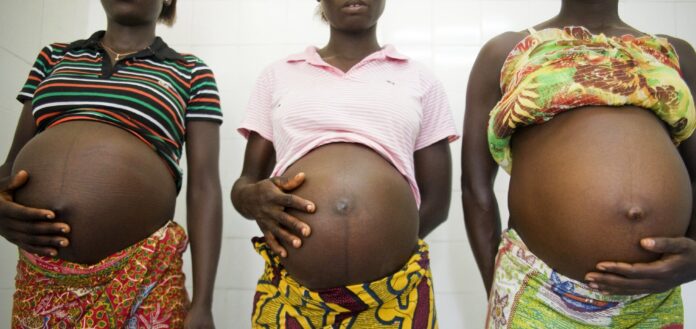50% teens fell pregnant in Ndola’s Kaniki
A survey by Children’s Foundation Zambia has revealed a disturbing picture of teenage pregnancies in Kaniki, a settlement on the outskirts of Ndola, where almost half of adolescent girls have fallen pregnant. The findings, presented this week, link the crisis to poverty, transactional sex, and lack of access to reproductive health education.
The study shows that many girls, some as young as 14, are engaging in sex-for-money arrangements around the Sakania border area. The report notes that because families struggle to meet basic needs, young girls become vulnerable to exploitation by older men who provide money or material goods in exchange for sex.
According to the survey, widespread poverty in Kaniki has become the single most significant factor pushing teenagers into risky behaviour. Households in the area face persistent food shortages, limited employment opportunities, and weak social support systems. Parents often cannot afford school fees, uniforms, or supplies, making their daughters susceptible to offers of financial help that come with hidden costs.
The report cites testimonies from girls who admitted to entering into sexual relationships for as little as K50, enough to buy food or pay for minor household needs. “We found that the desperation for survival is pushing girls into situations where they trade their future for immediate relief,” the study notes.
Children’s Foundation Zambia also highlighted the lack of effective sexual health education in schools and communities. Most teenagers interviewed reported that they had little or no access to contraceptives, and those who became pregnant often dropped out of school permanently.
Community leaders have acknowledged the problem but say resources to tackle it remain limited. Local health centres struggle with shortages of staff and supplies, while non-governmental organisations covering reproductive health operate on restricted budgets.
The consequences of the crisis are far-reaching. Early pregnancies expose girls to health complications, including high risks of maternal mortality, unsafe abortions, and long-term reproductive challenges. Economically, teenage mothers are locked out of education, reducing their prospects for employment and increasing dependence on social assistance.
The report warns that if left unaddressed, the pattern will entrench a cycle of poverty in Kaniki. Families headed by teenage mothers often find themselves in deeper financial distress, with limited options for breaking free from deprivation.
Children’s Foundation Zambia has called for a coordinated response that combines education, healthcare, and social protection. Recommendations include community-based campaigns on sexual health, expansion of youth-friendly health services, and greater involvement of traditional leaders in addressing cultural practices that normalise early sexual activity.
Local leaders have urged government intervention through the Constituency Development Fund, saying that targeted programmes in border areas are urgently needed. “This is not just a health issue, it is a community survival issue,” one community representative said.
The Ministry of Health has not yet issued an official response to the survey, but officials in Ndola have previously acknowledged that teenage pregnancies remain one of the most stubborn social challenges in Copperbelt Province. Programmes promoting contraceptive use and keeping girls in school have been introduced in some districts, though coverage is uneven.



“Households in the area face persistent food shortages, limited employment opportunities, and weak social support systems. Parents often cannot afford school fees, uniforms, or supplies” the report above says
And some people are busy self praising themselves. God help us
How do you blame government for this it’s seems as lack of knowledge and guidance from parents they are still children does parents find this acceptable. Traditional leaders, schools and adults should play their part they’re right there on the ground and what’s of the laws of the land is there not a consenting age?
OMG, these kids started oil change early. Kikikiki…
Comments are closed.